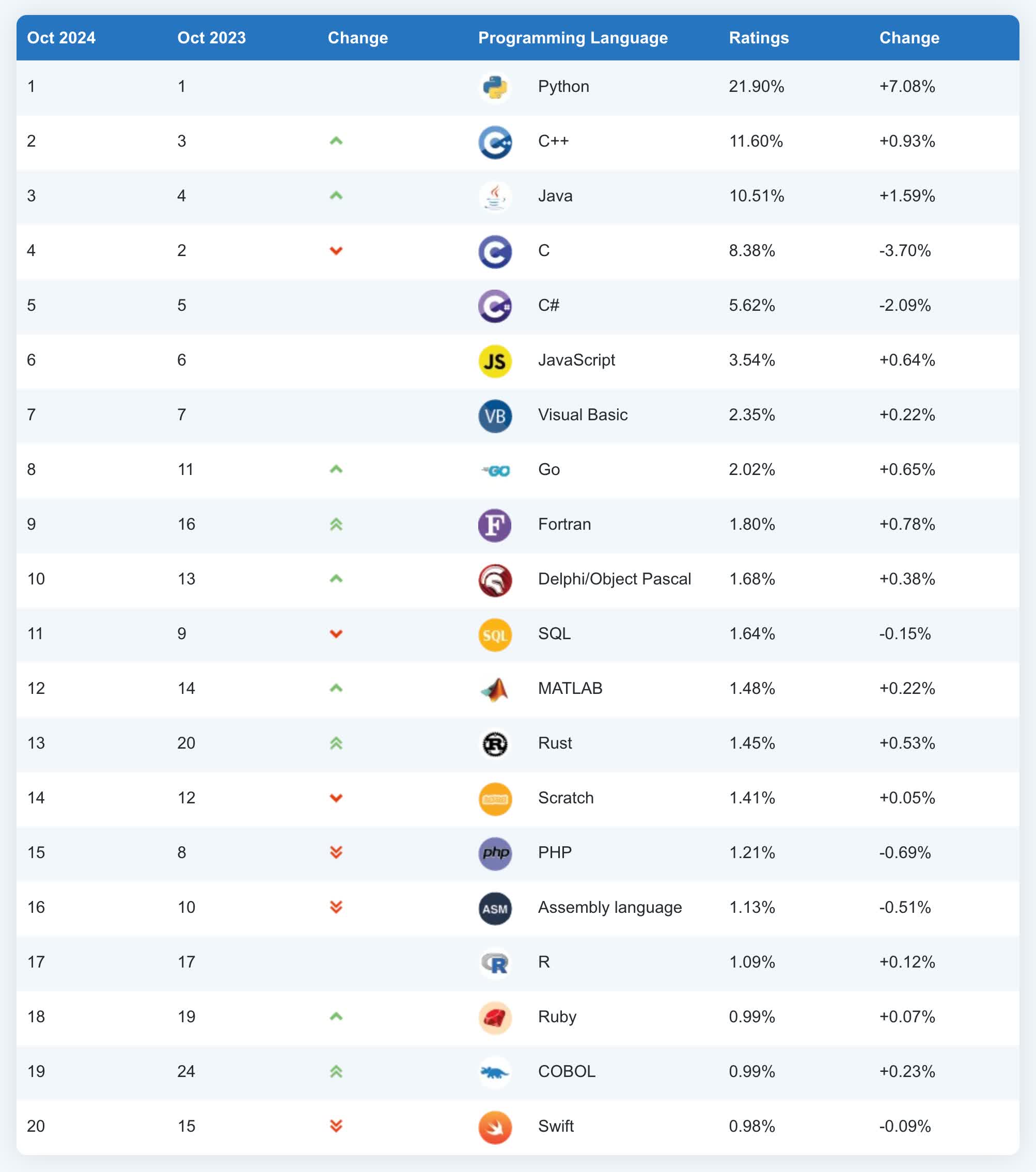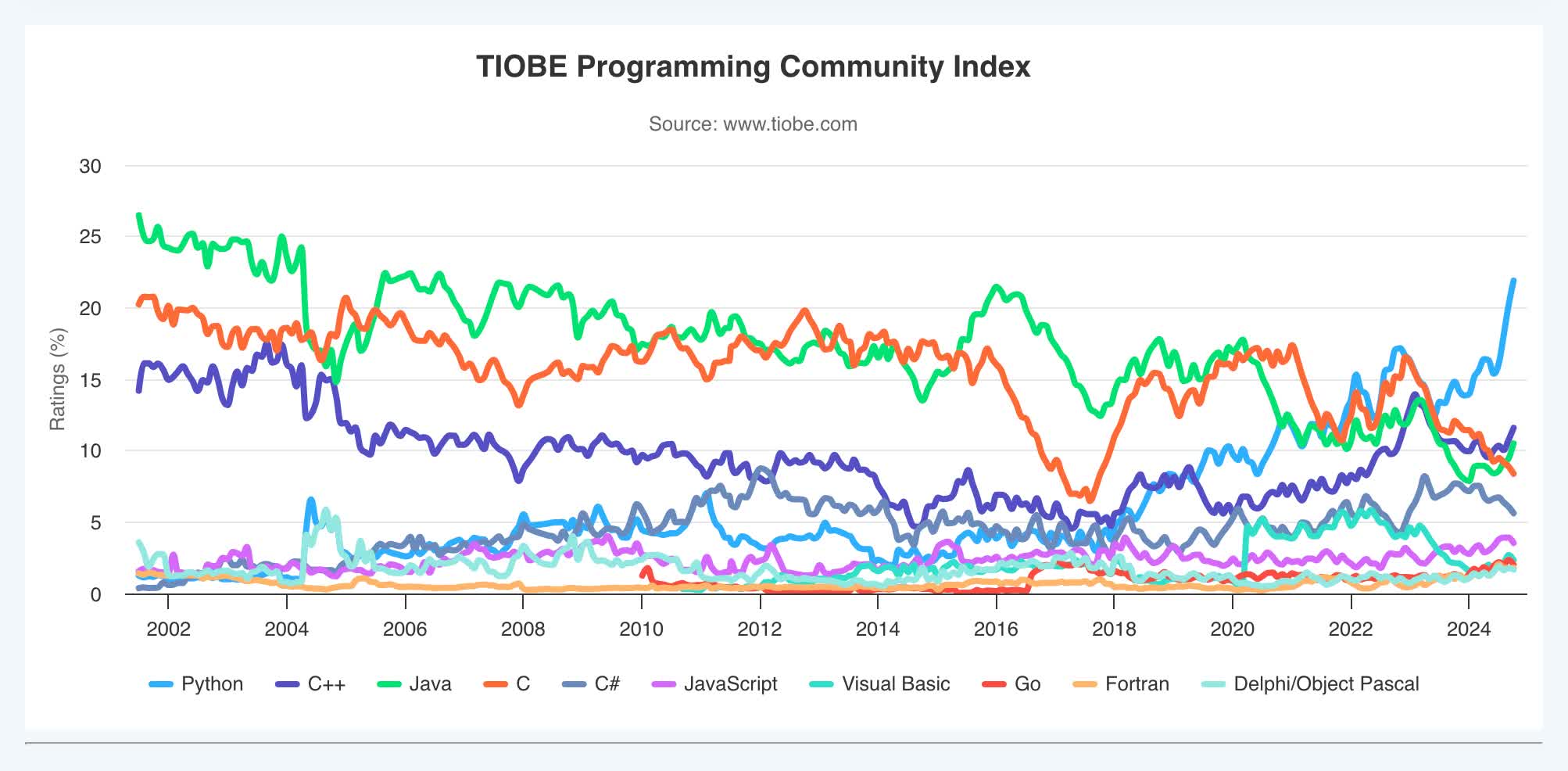Playing with numbers: Programming languages are staying in step with the latest advancements in technology. While old favorites continue to be used by millions, modern contenders are emerging with more efficient ways to manage and process data – particularly in this increasingly generative AI-driven landscape.
The latest update to the TIOBE Index reveals notable shifts in the world of software development. While traditional programming languages remain popular, many developers are seeking out technologies that can make sense of the vast amounts of modern digital data. Legacy languages like C, COBOL, Fortran, and Assembly still have their place, but they no longer take center stage.
The TIOBE Index, a monthly measure of programming language popularity maintained by Dutch company TIOBE Software BV, gathers its "popularity" data from search results across over 20 websites, including Google, Amazon, Wikipedia, and Bing.
For October 2024, Python continues to reign as the most popular programming language, growing by +7.08 percent in the past month and holding a 21.90 percent market share. C++ has claimed second place with 11.60 percent, followed by Java with 10.51 percent. The classic C language, however, is losing ground, now ranking fourth with 8.38 percent market share, down 3.70 percent.
According to TIOBE Software CEO Paul Jansen, the amount of digital data in today's tech world is growing at an unprecedented pace, driving increased demand for tools that can efficiently process and manipulate this data. Programmers now require languages that excel in handling large volumes of bits and bytes, performing complex calculations, and delivering high performance.
Python is easy to learn and secure, but is not fast enough, Jansen said. It's why software engineers are "frantically" looking for more powerful alternatives. C++ could be a candidate, but isn't secure enough in memory management tasks. Rust is an interesting newcomer despite not being easy to learn, and is rapidly approaching the TIOBE Index top 10.
One surprising new entry is Mojo, a programming language created by Chris Lattner in 2023, which made its debut on the TIOBE Index in October 2024. Jansen describes Mojo as a blend of Python and Swift, offering much faster performance. Currently ranked 49th with a 0.15 percent share, Mojo is particularly suited for low-level programming on AI hardware, such as GPUs, without needing Nvidia's proprietary CUDA API for parallel computing.


